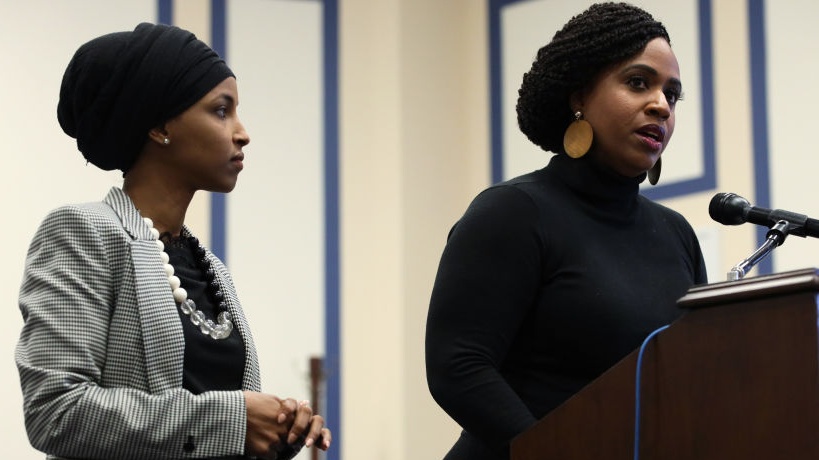Congresswomen Ayanna Pressley, D-Mass., and Ilhan Omar, D-Minn., proposed new legislation Monday to cancel student debt in an effort to relieve borrowers impacted by the coronavirus pandemic.
The two house representatives introduced the piece of legislation as the Student Debt Emergency Relief Act, which would immediately cancel at least $30,000 in outstanding student loan debt for borrowers who relied on federal student loans. It would also safeguard them from involuntary payments and wage garnishment while the pandemic persists.
“During this unprecedented crisis, no one should have to choose between paying their student loan payment, putting food on the table or keeping themselves and their families safe and healthy,” Rep. Pressley said in a press release. “We must prioritize debt cancellation for the 45 million student loan borrowers who are struggling to pay off their debt during this difficult time.”
According to Pressley’s office, 45 million workers and their families could find some form of financial relief under this proposed legislation.
“Student debt was a crisis before the coronavirus. And it’s an even deeper crisis now,” said Rep. Omar. “There are over 750,000 student loan borrowers in Minnesota—and they owe a whopping $34,932 on average. We must not force Americans to choose between putting food on the table and paying off exorbitant student loans.”
A group of Democrats including senators Chuck Schumer, D-N.Y., Patty Murray, D-Wash., Sherrod Brown, D-Ohio, and Elizabeth Warren, D-Mass., previously proposed to cancel monthly payments for the duration of the national emergency and asked the Department of Education to pay at least $10,000 for all federal loan borrowers.
Senator Lindsey Graham, R-S.C., told Fox News Sunday that he doesn’t believe reducing student loans by $10,000 would help support people during the outbreak.
“Democrats are trying to reduce student loans by $10,000. What the hell has that got to do with the virus? I’m sure everybody could use more money, but I don’t want to give money to people who have a paycheck. I want to give money to people who have lost their jobs,” he said.
The Student Debt Emergency Relief Act is endorsed by the Leadership Conference on Civil and Human Rights, National Women's Law Center, American Federation of Teachers, Student Debt Crisis, Americans for Financial Reform and a number of other like-minded groups. Natalia Abrams, executive director of the nonprofit advocacy group Student Debt Crisis, wrote in support of the bill and said that we must protect the demographics most at risk during this time.
“Black and brown students who carry more student loan debt than any other group are now hit with the bulk of lost hours and layoffs. Older Americans who are at the greatest risk of defaulting on their student loans and are now unable to access the basic needs they depend on every day,” Abrams detailed in the statement.
There are more than 43 million Americans with $1.5 trillion in student loan debt. Federal loans comprise $1.3 trillion of that total, according to the Center for American Progress.
At the moment, the Department of Education has offered two options for borrowers adversely affected during the pandemic. It has dropped interest rates on student loans automatically to 0% for at least the next 60 days, and those who are having real difficulty with their loans can request interest-free forbearance from their servicer for at least two months with no required documentation to receive it.
Also, if borrowers are more than 31 days delinquent on their federal loans as of March 13, their payments are now suspended.
